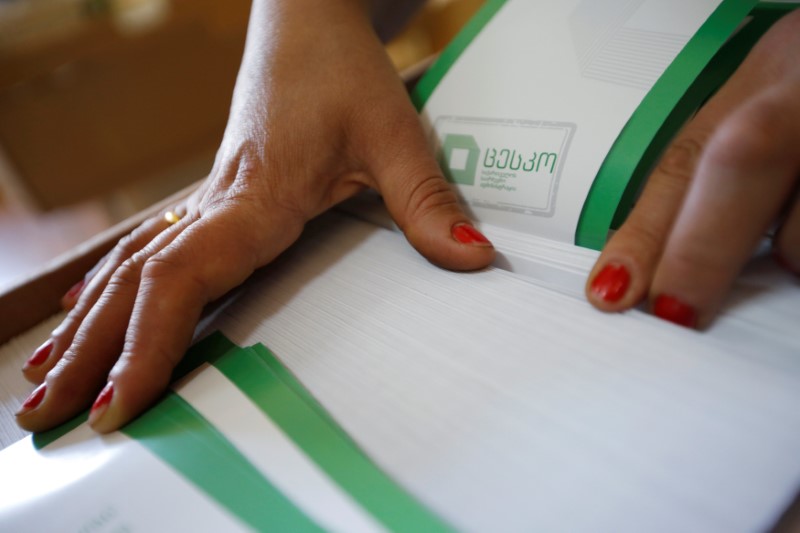By Margarita Antidze
TBILISI (Reuters) - Georgia holds a parliamentary election on Saturday seen as a test of the stability of the ex-Soviet state criss-crossed by strategically important oil and gas pipelines and traditionally buffeted between Russia and the West.
A fifth of Georgian territory remains under the control of pro-Russian separatists following a short war with Russia in 2008 and the economy is emerging from a deep slowdown that has eroded living standards.
Polls suggest the ruling Georgian Dream party, funded by the country's richest man, is likely to win. But they also show strong support for the opposition United National Movement (UNM) and that many voters are undecided.
The pre-election atmosphere in the nation of 3.7 million, a U.S. ally, was marred by a car bomb that targeted an opposition deputy in Tbilisi. Givi Targamadze survived, but five passers-by were injured.
In a separate attack, two men were shot and wounded on Sunday at a speech by Irakly Okruashvili, an independent candidate, in the town of Gori.
CORRUPTION
Both the government and the opposition would like to see Georgia join the European Union and NATO, but such a move would be strongly resisted by Moscow. Georgian Dream also favors stronger ties with Russia.
"The two biggest parties will definitely make it into parliament, but other parties also have some chances and there will be some room for coalition building," said Koba Turmanidze, director of the Tbilisi-based Caucasus Research Resource Centre.
The pro-Western Free Democrats and the pro-Russian Alliance of Patriots may be among those who clear the 5 percent threshold needed to get into the 150-seat parliament, analysts say.
Georgian Dream was founded by billionaire Bidzina Ivanishvili, who made his fortune in Russia. It came to power in 2012, ending the nine-year rule of former President Mikheil Saakashvili's UNM.
It was the first peaceful transfer of power since the 1991 Soviet collapse and followed protests over a scandal involving the mistreatment of prison inmates and accusations that Saakashvili, who was feted in the West for his reforms, was behaving in an authoritarian manner.
Under Georgian Dream, dozens of ex-officials have been arrested on charges such as abuse of power, and some Western countries have accused the government of selectively applying justice.
Saakashvili, now a regional politician in Ukraine, is wanted at home on a string of charges, including corruption. He says the charges are politically motivated.
Many Georgians accuse the government of mishandling the economy, which has been hit by a decline in exports and remittances despite expanding by 2.7 percent in the first eight months of this year.

"Prices rise, the lari (the national currency) falls, loans are more expensive. Who should I blame if not the government?" said Kakhaber Japaridze, a 52-year-old Tbilisi resident.